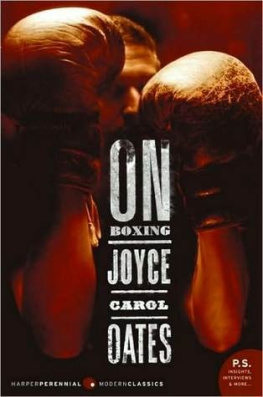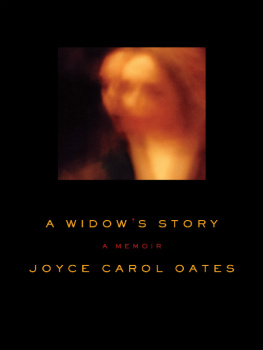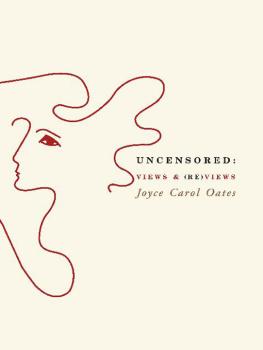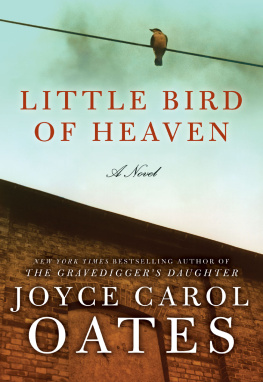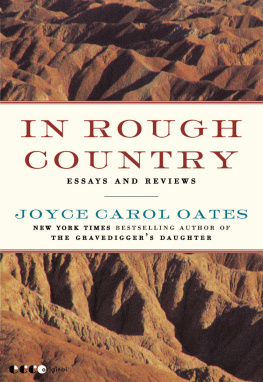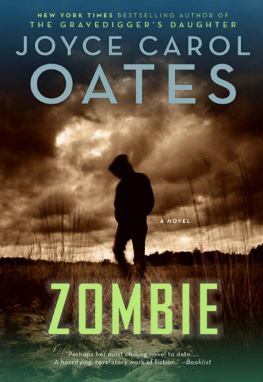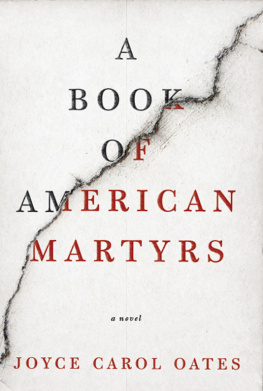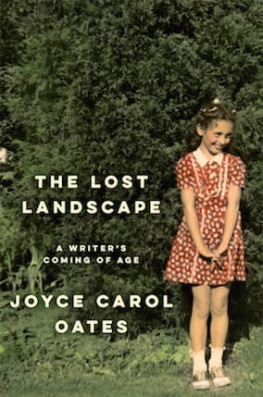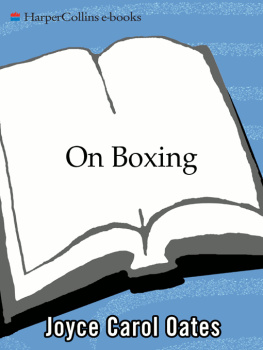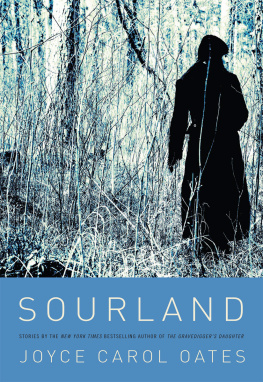Joyce Carol Oates - On Boxing
Here you can read online Joyce Carol Oates - On Boxing full text of the book (entire story) in english for free. Download pdf and epub, get meaning, cover and reviews about this ebook. year: 2006, publisher: Harper Perennial Modern Classics, genre: Non-fiction. Description of the work, (preface) as well as reviews are available. Best literature library LitArk.com created for fans of good reading and offers a wide selection of genres:
Romance novel
Science fiction
Adventure
Detective
Science
History
Home and family
Prose
Art
Politics
Computer
Non-fiction
Religion
Business
Children
Humor
Choose a favorite category and find really read worthwhile books. Enjoy immersion in the world of imagination, feel the emotions of the characters or learn something new for yourself, make an fascinating discovery.
- Book:On Boxing
- Author:
- Publisher:Harper Perennial Modern Classics
- Genre:
- Year:2006
- Rating:4 / 5
- Favourites:Add to favourites
- Your mark:
- 80
- 1
- 2
- 3
- 4
- 5
On Boxing: summary, description and annotation
We offer to read an annotation, description, summary or preface (depends on what the author of the book "On Boxing" wrote himself). If you haven't found the necessary information about the book — write in the comments, we will try to find it.
A reissue of bestselling, award-winning author Joyce Carol Oates classic collection of essays on boxing.
On Boxing — read online for free the complete book (whole text) full work
Below is the text of the book, divided by pages. System saving the place of the last page read, allows you to conveniently read the book "On Boxing" online for free, without having to search again every time where you left off. Put a bookmark, and you can go to the page where you finished reading at any time.
Font size:
Interval:
Bookmark:
ON BOXING
With photographs by John Ranard
The Edge of Impossibility:
Tragic Forms in Literature (1972)
New Heaven, New Earth:
The Visionary Experience in Literature (1974)
Contraries (1981)
The Profane Art:
Essays and Reviews (1983)
On Boxing (1987)
(Woman) Writer:
Occasions and Opportunities (1988)
George Bellows:
American Artist (1995)
Where Ive Been, And Where Im Going:
Essays, Reviews, and Prose (1999)
The Faith of a Writer:
Life, Craft, Art (2003)
Uncensored:
Views & (Re)views (2005)
ON BOXING . Copyright 2006 by The Ontario Review, Inc..
EPub Edition MAY 2007 ISBN: 9780061846878
For the contenders
ABOUT THE PUBLISHER
N o other subject is, for the writer, so intensely personal as boxing. To write about boxing is to write about oneselfhowever elliptically, and unintentionally. And to write about boxing is to be forced to contemplate not only boxing, but the perimeters of civilizationwhat it is, or should be, to be human.
When I was writing On Boxing , in the grip of a curious, inexplicable compulsion, from February 1985 (when I drafted a short story titled Golden GlovesI never understood why) to spring 1987, it happened that I was riding the crest, without knowing it, of a triumphant era in this turbulent and always precarious American sport. The great, inimitable Muhammad Ali had retired, but Larry Holmes was an estimable, intrepid heavyweight champion. Marvin Hagler was a brilliant middleweight champion. The ingenious Sugar Ray Leonard, recently retired, was due soon to returnwith unexpectedly spectacular results. There was Michael Spinks, there was Thomas Hearns, there was the buttery-smooth and seemingly invincible Donald Curry. There was, seemingly forever, Roberto Duran. There was the beloved Irish featherweight champion Barry McGuigan. And a Cus DAmato-trained young man named Mike Tyson, whose first professional fight was in March 1985, was rapidly ascending the ranks of the heavyweight division by knock-outs. Like the legendary Harry Greb, Tyson seemed to be training by fighting, every two or three weeks, indefatigably. Tysons career was so meteoric, and so self-consuming, that it has seemed as much moral ex-emplum as sports history: beginning in public glory, ending in public shame. (If, in fact, Tysons career, after his conviction on charges of rape in February 1992, has ended.)
Much has changed in boxing since that time, though it has been hardly a decade. Virtually all of the reigning boxers have disappeared. The enormous purses of the 1980sthe theme of an entire chapter of On Boxing have been multiplied tenfold for heavyweight title fights. The sport seems in crisis, its best practitioners no less than its most dubious contaminated by association with fixed fights, manipulated judges, questionable referees. Demands for its abolition are made, indignation is aroused, well-argued editorials are printed, deals continue to be made, boxers continue to be managed. Occasionally there is a boxing match that, in its demonstration of skill, courage, intelligence, hope, seems to redeem the sportor almost. Perhaps boxing has always been in crisis, a sport of crisis.
Without doubt, it is our most dramatically masculine sport, and our most dramatically self-destructive sport. In this, for some of us, its abiding interest lies.
JANUARY 1994
Its a terrible sport, but its a sportthe fight for survival is the fight .
R OCKY G RAZIANO ,
former middleweight champion of the world
T hey are young welterweight boxers so evenly matched they might be twins, though one has a redheads pallor and the other is a dusky-skinned Hispanic. Circling each other in the ring, beneath the glaring lights, trying jabs, tentative left hooks, right crosses that dissolve in mid-air or turn into harmless slaps. How to get inside! How to press an advantage, score a point or two, land a single punch! It seems they have forgotten all theyve been trained to do and the Madison Square Garden fight crowd is getting noisy, derisive, impatient. Time is running out. Those twowhatd they do, wake up this morning and decide they were boxers? a man behind me says in disgust. (Hes dark, nattily dressed, neat-trimmed moustache and tinted glasses. A sophisticated fight fan. Knows all the answers. Two hours later he will be screaming, Tommy! Tommy! Tommy! over and over in a paroxysm of grief as, on the giant closed-circuit television screen lowered over the ring, middleweight champion Marvelous Marvin Hagler batters his brash challenger Thomas Hearns into insensibility.)
The young welterweights are surely conscious of the chorus of jeers, boos, and catcalls in this great cavernous space reaching up into the cheap twenty-dollar seats in the balconies amid the constant milling of people in the aisles, the commingled smells of hotdogs, beer, cigarette and cigar smoke, hair oil. But they are locked desperately together in their futile matchcircling, dancing, jabbing, slapping, clinchingnow a flurry of light blows, clumsy footwork, yet another sweaty stumbling despairing clinch into the ropes that provokes a fresh wave of derision as the referee helps them apart. Why are they here in the Garden of all places, each fighting, it seems, his first professional fight? Neither wants to hurt the otherneither is angry at the other. When the bell sounds at the end of the fourth and final round the crowd boos a little louder. The Hispanic boy, silky yellow shorts, damp frizzy floating hair, strides about his corner of the ring with his gloved hand aloftnot in defiance of the boos which increase in response to his gesture, or even in acknowledgment of them. Its just something hes doing, something he has seen older boxers do, hes saying Im, here, I made it, I did it .
When the decision is announced as a draw the crowds derision increases in volume. Get out of the ring! Assholes! Go home! Contemptuous male laughter follows the boys up the aisle in their robes, towels about their heads, sweating, breathless. Why had they thought they were boxers?
How can you enjoy so brutal a sport, people sometimes ask me.
Or pointedly dont ask.
And its too complex to answer. In any case I dont enjoy boxing in the usual sense of the word, and never have; boxing isnt invariably brutal; and I dont think of it as a sport.
Nor can I think of boxing in writerly terms as a metaphor for something else. No one whose interest began as mine did in childhoodas an offshoot of my fathers interestis likely to think of boxing as a symbol of something beyond itself, as if its uniqueness were merely an abbreviation, or iconographic; though I can entertain the proposition that life is a metaphor for boxingfor one of those bouts that go on and on, round following round, jabs, missed punches, clinches, nothing determined, again the bell and again and you and your opponent so evenly matched its impossible not to see that your opponent is you: and why this struggle on an elevated platform enclosed by ropes as in a pen beneath hot crude pitiless lights in the presence of an impatient crowd?that sort of hellish-writerly metaphor. Life is like boxing in many unsettling respects. But boxing is only like boxing.
For if you have seen five hundred boxing matches you have seen five hundred boxing matches and their common denominator, which certainly exists, is not of primary interest to you. If the Host is only a symbol, as the Catholic writer Flannery OConnor once remarked, Id say the hell with it.
Font size:
Interval:
Bookmark:
Similar books «On Boxing»
Look at similar books to On Boxing. We have selected literature similar in name and meaning in the hope of providing readers with more options to find new, interesting, not yet read works.
Discussion, reviews of the book On Boxing and just readers' own opinions. Leave your comments, write what you think about the work, its meaning or the main characters. Specify what exactly you liked and what you didn't like, and why you think so.

